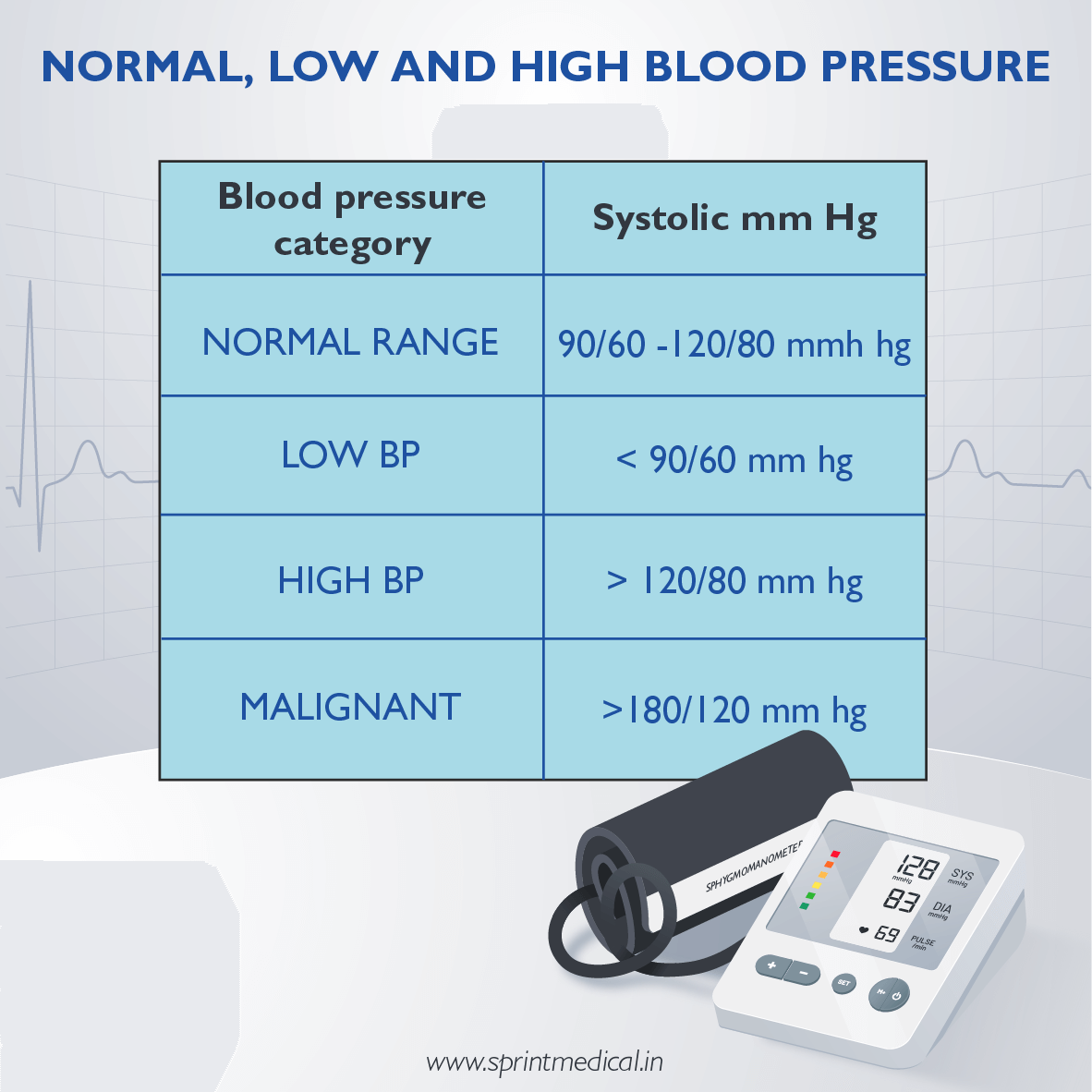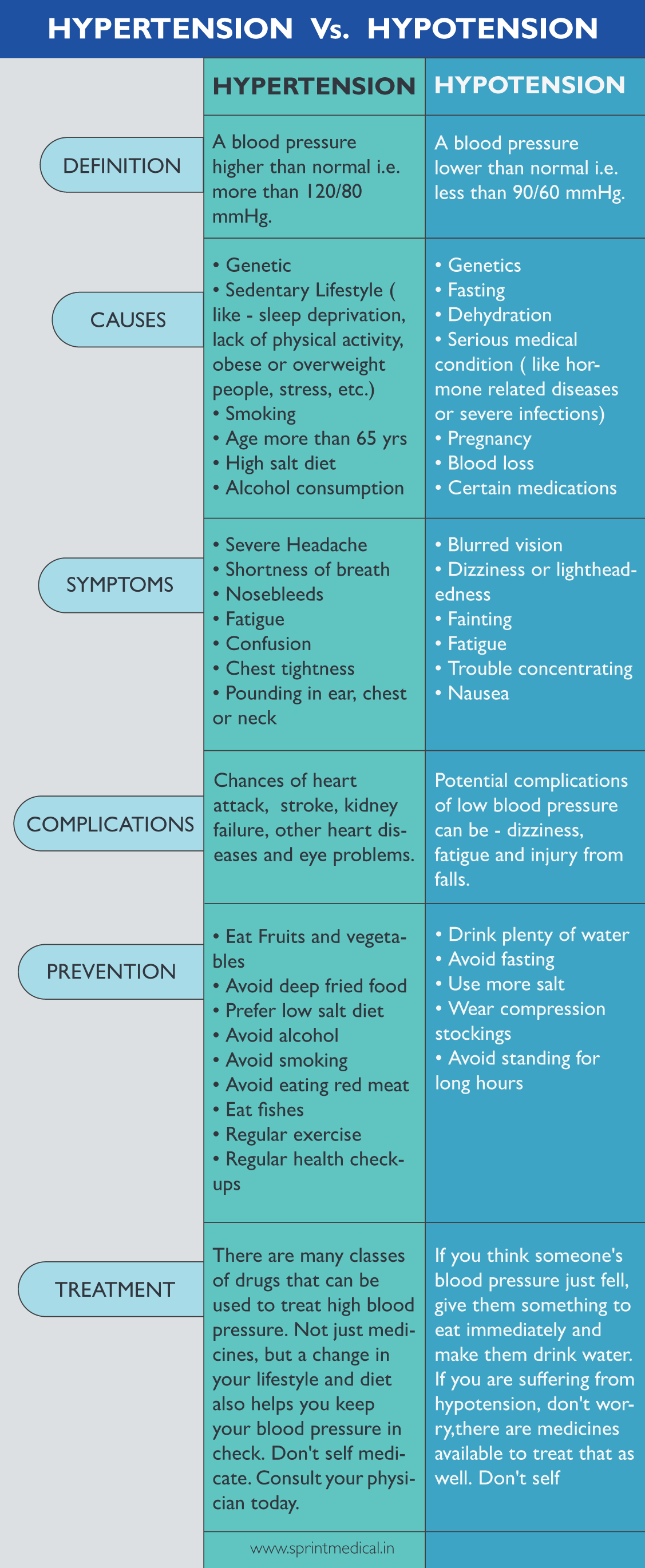
Blood pressure is the force at which your blood is pumped. Blood pressure should be at a normal level. It should neither be high (hypertension) nor low (hypotension)
I am sure, You must have heard about people with high blood pressure, and maybe someday your doctor may have informed you that the reason you were feeling lightheaded was simply because your blood pressure dropped. Your next question must be, "What is blood pressure?" How can blood have any sort of pressure, and if it does, how high or low can it get at different times? You need not be concerned; we'll dispel your uncertainty today. Yes, in this article you would know more about blood pressure and everything related to it.
What is blood pressure?
A closed system of blood vessels, namely arteries, veins, and capillaries, along with the heart, circulates all the blood in your body. In this circuit, the heart plays a significant role as a pump that facilitates the circulation of blood throughout your body.
Now what your heart does is, it pumps the blood from its chambers into the vessels. The force your heart needs to pump blood throughout your body is known as your blood pressure. When it happens, the blood exerts a certain pressure on the vessel carrying it which can be measured, and that becomes your blood pressure.
Importance of blood pressure
So now you know, the force that propels blood through the circulatory system is blood pressure. For blood to properly flow from the heart to the body's organs and tissues, normal pressure is necessary. Here are some points of importance of blood pressure:
- Blood pressure is a crucial force because, without it, the circulatory system could not push nutrients and oxygen to nourish tissues and organs.
- Blood transports hormones like insulin, white blood cells, and antibodies for immunity, blood pressure is thus essential.
- Blood also helps in the excretion of toxic waste products of metabolism, including the carbon dioxide we exhale with every breath and the toxins we clear through the liver and kidneys, which is just as crucial as giving oxygen and nutrition.
- Temperature is just one of many other characteristics that blood itself possesses. Additionally, it contains clotting platelets, one of the body's defenses against tissue damage
How to measure blood pressure?
The blood pressure is measured by a special device known as the sphygmomanometer. This machine has an inflatable cuff - that is tied to your arm; a measuring machine and a mechanism to inflate the cuff. Sphygmomanometers come in both digital and manual formats. For use at home, a digital sphygmomanometer is better as it is easy to use.
Here are the steps you need to follow for getting your blood pressure measured:
- 30 minutes before taking your blood pressure, avoid eating or drinking anything.
- Before taking the blood pressure reading, make sure your bladder is empty.
- For at least five minutes before taking the reading, take a seat comfortably with your back supported.
- Place your legs uncrossed and both feet flat on the ground.
- On a table at chest height, rest your arm with the cuff of the sphygmomanometer on.
- The blood pressure cuff should be snug but not too tight. The cuff should rest on your exposed skin rather than on top of your garments.
- Read the pressure readings properly and note them down for future use.
- Talking while having your blood pressure taken is not advised.
It is advised to take 2 readings at least 5 minutes apart and from both the left and right arm.
You can get your blood pressure measured at :
- The doctor's clinic
- A pharmacy with a properly working digital sphygmomanometer
- At your home, with a properly functional digital sphygmomanometer
What do blood pressure numbers mean?
Now, when you read your blood pressure, you'll see two numbers written as - 120/80mm hg. What do these blood pressure numbers mean?
Systolic blood pressure, which is the first number, indicates how much pressure your blood is exerting against your artery walls when the heart beats.
The second number is known as diastolic blood pressure, indicating how much pressure your blood is exerting against your artery walls while the heart is resting between beats.
The blood pressure is read as " 120 over 80 mm hg " where 120 is the systolic blood pressure and 80 is the diastolic blood pressure.
Normal, low and high blood pressure
According to The American Heart Association, normal blood pressure is - a systolic blood pressure between 90 - 120 mmHg and a diastolic blood pressure between 60 - 80 mmHg.
So, if your blood pressure is between - 90/60 mmHg and 120/80 mmHg, you have normal blood pressure.
- Malignant Hypertension - Malignant hypertension is a term that has been used to describe patients with elevated blood pressure (BP) and multiple complications with poor prognosis. The blood pressure in these patients is found to be 180/120 mm hg or more.
- Treatment resistant Hypertension - Resistant hypertension (RH) is defined as above-goal elevated blood pressure (BP) in a patient despite the concurrent use of 3 different types of antihypertensive medicines.
 Which number is more important?
Which number is more important?
Systolic blood pressure, or the first number, is typically given more consideration as a significant risk factor for cardiovascular disease in adults over 50. Systolic blood pressure typically increases steadily with age in most persons due to the stiffening of big arteries, the accumulation of plaque over time, and the development of cardiac and vascular illnesses.
However, a diagnosis of high blood pressure may be made using either an increased systolic or elevated diastolic blood pressure result. Recent studies show that among persons aged 40 to 89, the risk of dying from heart disease and stroke doubles with every 20 mm Hg systolic or 10 mm Hg diastolic increase.
High blood pressure
High blood pressure, also known as Hypertension, is a condition when blood pressure rises more than 120/80 mm Hg.
Symptoms of high blood pressure
- Severe Headache
- Shortness of breath
- Nosebleeds
- Fatigue
- Confusion
- Chest tightness
- Pounding in the ear, chest or neck
Causes of high blood pressure
- Genetic
- Sedentary Lifestyle ( like - sleep deprivation, lack of physical activity, obese or overweight people, stress, etc.)
- Smoking
- Age more than 65 yrs
- High salt diet
- Alcohol consumption
Complications from high blood pressure
Chances of heart attack, stroke, kidney failure, other heart diseases and eye problem
Preventing and managing high blood pressure
- Eat Fruits and vegetables
- Avoid deep-fried food
- Prefer low salt diet
- Avoid alcohol
- Avoid smoking
- Avoid eating red meat
- Eat fishes
- Regular exercise
- Regular health checkups
Treatment of high blood pressure
There are many classes of drugs that can be used to treat high blood pressure. Not just medicines, but a change in your lifestyle and diet also helps you keep your blood pressure in check. Don't self-medicate. Consult your physician today.
Low blood pressure
Low Blood Pressure, also known as HYPOTENSION, is a condition where the blood pressure falls below 90/60 mm Hg.
Symptoms of low blood pressure
- Blurred vision
- Dizziness or lightheadedness
- Fainting
- Fatigue
- Trouble concentrating
- Nausea
Causes of low blood pressure
- Genetics
- Fasting
- Dehydration
- Serious medical condition ( like hormone related diseases or severe infections)
- Pregnancy
- Blood loss
- Certain medications
Complications from low blood pressure
Potential complications of low blood pressure can be - dizziness, fatigue and injury from falls.
Preventing and managing low blood pressure
- Drink plenty of water
- Avoid fasting
- Use more salt
- Wear compression stockings
- Avoid standing for long hours
Treatment of Low Blood Pressure
If you think someone's blood pressure just fell, give them something to eat immediately and make them drink water. If you are suffering from hypotension, don't worry, there are medicines available to treat that as well. Don't self-medicate.
Hypertension vs Hypotension
A comparison table between hypertension and hypotension is provided here to assist you in better comprehending each condition.
 Take-Home Points
Take-Home Points
So now you know what is blood pressure? And what is the importance of blood pressure? So regularly keep checking your blood pressure and take preventive measures to keep it in normal ranges. Consult your doctor today and track blood pressure on regular intervals to stay healthy and fit. You should follow the preventive measures to avoid the risk of hypertension or hypotension. Never skip your medication prescribed by the doctor for your blood pressure.
FAQ on Blood Pressure - Definition, Symptoms, Treatment, Normal Levels, etc.
1. Which is more important: systolic or diastolic blood pressure?
Ans. Though systolic blood pressure was considered to be more important, recent studies prove both systolic and diastolic blood pressure play important roles.
2. When to seek medical attention for high blood pressure?
Ans. If you are aged more than 65 yrs or have any of the following symptoms, you might be suffering from high blood pressure and you should immediately consult a physician.
Symptoms:
- Severe Headache
- Shortness of breath
- Nosebleeds
- Fatigue
- Confusion
- Chest tightness
- Pounding in ear, chest or neck
3. When to worry about low blood pressure?
Ans. If you have the following symptoms, you may be suffering with low blood pressure-
- Blurred vision
- Dizziness or lightheadedness
- Fainting
- Fatigue
- Trouble concentrating
- Nausea
4. Are blood pressure machines accurate?
Ans. Yes, blood pressure machines are usually accurate. If you feel your machine is not working properly, go to your nearest clinic and get your blood pressure measured today.
5. Can blood pressure cause headaches?
Ans. Yes, the reason behind your headache can be high blood pressure. If you've been suffering with it a lot lately, get your blood pressure measured today and consult a doctor.
6. Can blood pressure cause dizziness?
Ans. Yes, low blood pressure can cause dizziness or light-headedness.
7. Can blood pressure be cured?
Ans. Yes, if you're suffering from any kind of blood pressure problem, there are medicines and lifestyle changes that can help you cure it.
8. When to measure blood pressure?
Ans. If you are experiencing any of the above-mentioned symptoms or you have a history of fluctuating blood pressure, you should keep measuring your blood pressure at regular intervals, like every 15 days. You can measure your blood pressure at any hour of the day.
9. What are normal blood pressure numbers?
Ans. Normal blood pressure numbers lie between the range of
Systolic blood pressure- 90-120 mm Hg
Diastolic blood pressure- 60- 80 mm Hg
10. When to seek medical attention for high blood pressure?
Ans. If you are experiencing any of the above-mentioned symptoms or have a history of fluctuating blood pressure, you should seek medical attention.







